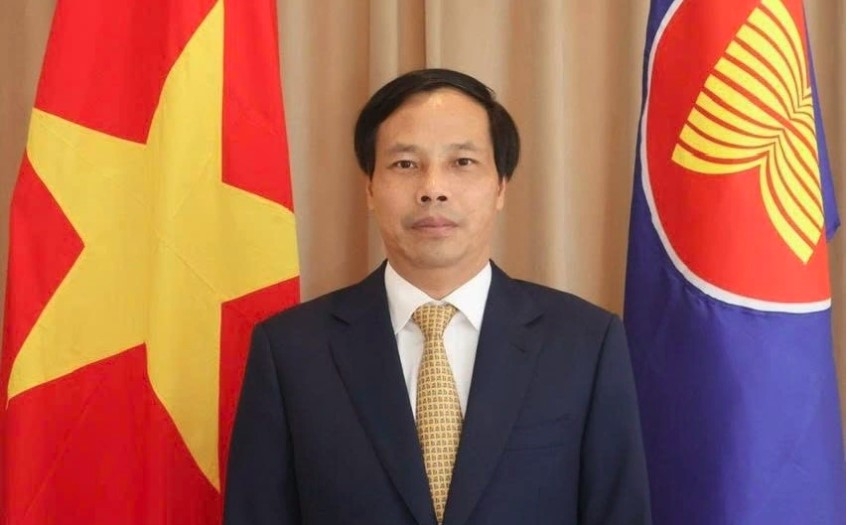PM Chinh’s visit expected to create breakthroughs for ties with Qatar
VOV.VN - Vietnamese Ambassador to Qatar Nguyen Huy Hiep has highlighted the significance of Prime Minister Pham Minh Chinh’s official visit to Qatar from October 30 to November 1 in a recent exchange with a VOV correspondent based in the Middle East – North Africa.

The Ambassador stated that this marks the first visit by a Vietnamese PM to the Middle Eastern nation in 15 years. The trip, coming 12 years after the Emir of Qatar's high-level visit to Vietnam, is designed to carry out the 13th National Party Congress's foreign policy and is in line with the 2016 to 2025 scheme to propel ties between Vietnam and the Middle East-Africa region forward.
By choosing Qatar as a destination in his tour of the Gulf region, PM Chinh demonstrates the nation’s recognition of Qatar's potential and role in the Middle East and its commitment to fostering a robust and multifaceted partnership.
The visit promises to consolidate political trust and open a new chapter in bilateral ties, particularly by attracting Qatari investment into the Vietnamese market, and pave the way for Vietnamese goods and services to access the regional and Qatari markets, thereby creating a win-win scenario for both nations.
Leaders of the two countries will discuss ways to bolster co-operation in the fields of investment, energy, aviation, agriculture, industry, and food security, while working to step up people-to-people exchanges and partnerships in education, tourism, culture, arts, and sports.
The Vietnamese Government chief’s agenda covers talks with Qatari PM and Minister of Foreign Affairs Sheikh Mohammed bin Abdulrahman Al-Thani, as well as meetings with senior Qatari leaders, key economic officials, as well as major Qatari corporations and enterprises.
The Ambassador highlighted energy and renewable energy as being a key co-operation area. With abundant oil and gas resources and financial and technological potential, Qatar can work alongside Vietnam in technology transfer and energy projects, especially in renewables. Moreover, the burgeoning Vietnamese economy, attractive investment climate, and open-door policies present lucrative opportunities for Qatari investors in the fields of manufacturing, agriculture, and services.
Ranked among the top 40 economies worldwide and being one of the top 20 global nations in terms of trade turnover, the country serves as a crucial link in 16 free trade agreements (FTAs) involving 60 major economies in the region and the world, a factor in making it a preferred investment destination among emerging and developing countries in Asia. It is also fully equipped and primed to become an important partner of Qatar.
In the Halal industry, the nation is actively pursuing a strategy to boost international ties through to 2030, while Qatar has introduced the Halal Livelihoods programme aiming to establish itself as a global hub for Halal products in the near future.
In terms of education and research, the potential for exchange programmes for students and lecturers, as well as joint scientific research, could improve the competitiveness and capabilities of both countries.
Regarding tourism and culture, Ambassador Hiep suggested the two nations hold cultural exchanges and tourism promotion events in a bid to deepen mutual understanding and collaboration.
Despite facing stiff competition from countries with similar export products and strong footholds, he advised Vietnamese firms to focus on goods in demand in Qatar, such as farm produce, food, electronics, apparel, footwear, and machinery. To enhance competitiveness, exporters should consider pricing, taste diversity, and product design, while also exploring the market firsthand to tailor their strategies to local preferences.
With both countries committed to opening markets and facilitating goods' access, the stage is set for more favourable policies which will serve to intensify business and investment activities. Beyond existing co-operation mechanisms, new tailored mechanisms in labour, trade, and investment are all being explored to deepen and expand the bilateral relations substantively, he said.
Qatar is currently implementing the National Development Strategy Phase 3, the final phase of the Qatar National Vision 2030, which focuses on sustainable economic growth, sustainable finance, future human resources, social harmony, quality of life, sustainable environment, and effective government. This strategy reflects the priority areas which Qatar will focus on in the coming time, while also opening up opportunities for co-operation between Qatar and others in areas such as energy, technology, manufacturing, tourism, and high-quality labour.
This can be seen as an opportunity for Vietnam to take advantage of augmenting co-operation with Qatar, in which the nation can support and supplement Qatar with various advantages in agricultural and food production and export; machinery, equipment, and electronic components.
It can also provide the Qatari side with skilled workers, especially those involved in technical labour, nurses, and service personnel such as hotels and aviation; exchange and learn from Qatar's experience in the fields of digital transformation and energy transition; and promote forms of joint venture co-operation and joint investment ties in areas of mutual interest in line with the National Development Strategy of Qatar, bringing about benefits to both countries, the Ambassador concluded.

